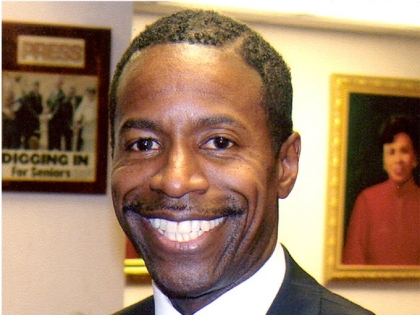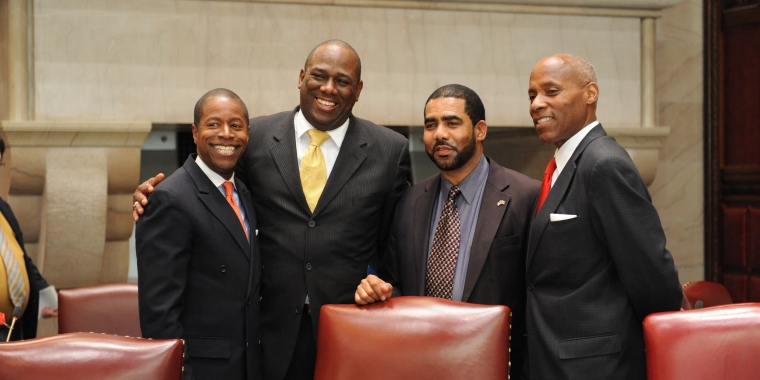
Senate Secures Bottle Bill, Green Jobs Initiatives and Environmental Protections in State Budget
(Albany, NY) The FY 2009-10 Environmental Conservation State Budget which passed the State Senate today includes a number of sensible environmentally and economically sound policies that will remove recyclable goods from the waste stream, create additional revenue for the State, and help create thousands of new “green” jobs in a targeted way to maximize results.
Amid the greatest economic crisis since the Great Depression, the Senate, Governor and Assembly passed a long-stalled Bigger Better Bottle Bill that had not passed the Senate in the previous nine sessions. Under the legislation, 80 percent of unclaimed deposits go to State environmental cleanup programs which is expected to generate $115 million in new revenue for the Environmental Protection Fund (EPF).
Under this plan, water bottles will now be returnable like the current system for carbonated beverages. Water bottles account for approximately 70 percent of bottles entering our waste stream.
Additionally, the State Budget will increase funding for the EPF from $205 million to $222 million, restoring $17 million in cuts to the Fund that had been proposed in the Executive Budget. The EPF invests in programs protecting New York’s water quality, open space, farmland and municipal parks.
“The Bigger Better Bottle Bill is an issue close to my heart for good reason,” said Senator Antoine Thompson (D-Parts of Erie & Niagara Counties), Chair of the Senate’s Environmental Conservation Committee. “The benefits here are two-fold. First, landfills are full of items that could have been recycled. Second, the Environmental Protection Fund fights year after year for adequate funding. The action we have taken today will help our environment by encouraging recycling and setting up a devoted funding stream for environmental cleanup through the EPF.”
During negotiations, the Senate also rejected a $45 million cash sweep of the EPF and restored $22 million for parks, zoos and botanical gardens, along with $15 million to Waterfront Revitalization programs.
“Our parks, zoos and botanical gardens, which count among the showplaces and most popular tourist attractions in our state, are breathing a collective sigh of relief,” said Senator Carl Kruger (D-Brooklyn), Chair of the Senate Finance Committee. “Overall, we are pleased that we were able to provide funding for the environment that helps our state serve as a “green” model for the rest of the nation.”
Federal stimulus funding was used to establish the Senate’s Green Initiatives Institute, a program that will support green jobs and community development statewide. The Institute will focus on bringing communities together to build green industry, maximize renewable technologies from the ground up, and create long standing, sustainable jobs. Approximately 58,000 new jobs will be created through weatherization, retrofitting and in the field of renewable energy development and distribution.
The Institute will operate through a competitive grants programs available to assist in the facilitation of developing regional working plans for municipalities, community colleges, not for profit organizations, and small businesses. It will also create regional Climate Change Education Centers whose sole purpose will be to educate citizens on the impacts of climate change facing New York State, as well as create economic and job opportunities required in meeting the challenges our environment faces. The Institute will manage grants for recipients who apply and go through an approval process.
Following up on a Senate-led demand, New York will continue to pay the full amount of property taxes owed on all state owned land. The initiative started by Senator Darrel J. Aubertine (D-Cape Vincent)—with the bi-partisan support of 17 other members—will ensure that much needed revenue is preserved for local governments while still allowing New York to acquire and protect open space and other lands.
“The green economy is an untapped market, and New York can and should be the research, development and production hub of alternative energies in the Northeast,” said Senate Majority Leader Malcolm A. Smith. “Integral to economic growth is anticipating future needs, future markets and future opportunities. This is a win-win because the Green Initiatives Institute will help bring our green jobs agenda to life all while protecting our environment.”

